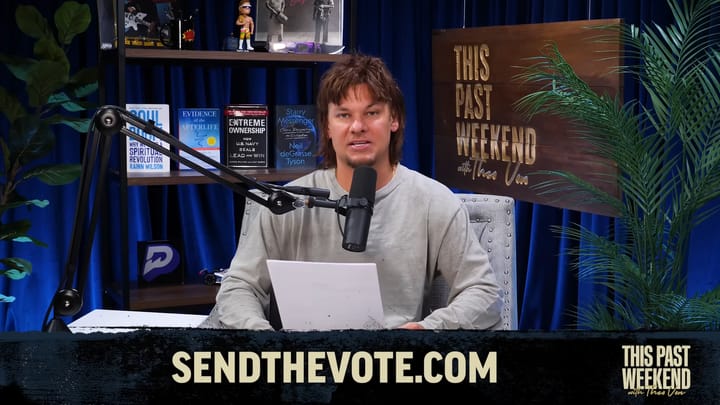Three Recommendations
This one goes out to the comedy fans.

If you enjoy the likes of John Mulaney, Tig Notaro, or Norm Macdonald, do yourself a favor and check out David Drake’s new special, That’s It!, now streaming on YouTube. I had never heard of Drake until a friend recommended the special a couple weeks ago, and I was a fan by the end of a first joke. Possibly the breeziest 84 minutes of standup I’ve ever encountered, That’s It! trods familiar comedy territory—fatherhood, marriage, day jobs, life in the big city, showbiz struggles—with an attention to detail and a sense of pacing that accomplishes the rare feat of making written material feel like a friend telling you a story. Much like Todd Barry and other masters of the form, Drake reawakens us to the comedy that suffuses our daily lives, in both the tenderest moments and the most banal. He also, somehow, melds a sort of earnest warmth and acid sarcasm into an endlessly watchable stage persona, equally at ease interrogating his relationship with his daughter and spinning a wild yarn about infidelity in video games. The special is free, but his Venmo is in the description—if you enjoy it, join me in sending him a few bucks.
When I got home from Anthony Jeselnik’s show at Carnegie Hall the other night, I did something I almost never do after getting home from a comedy show: watch more comedy. One of his openers was Dina Hashem, whom I’ve seen a handful of times around the city and who just released a special on Amazon Prime, Dark Little Whispers. She operates in a quiet, deadpan mode I tend to gravitate towards more readily than the showy exuberance that permeates so much standup these days. (Not that showy exuberance isn’t an effective tool in the right hands—see above.) I love a joke that’s not trying to impress anyone, that’s happy to luxuriate in moments of anxiety about what just happened or what’s about to. These moments are exactly where Hashem thrives: one of the funniest bits in the special, to my eye, comes when she asks if there are any believers in the audience and a few hesitant claps ring out in response. Like Jeselnik (and Django Gold, whose hour Bag of Tricks I plugged a few weeks ago and still owe a full review), she also has a knack for jokes that go from A to a surprising-but-in-retrospect-inevitable C, as in a story that winds its way from the Unite the Right rally to the cast of the Jersey Shore. I’m excited to see what she does next.
I’d be remiss if I didn’t say more about the aforementioned Anthony Jeselnik show at Carnegie Hall, part of the New York Comedy Festival and also his ongoing tour, Bones and All. It’s no secret to Humorism Nation that I’m a fan of Jeselnik, and as with everyone I’m a fan of, I feel lightly embarrassed to even try to characterize his work. (Look, I get why people hate comedy criticism: sometimes you just want to let a thing be what it is!) What I’ll say, at the risk of embarrassing myself, is that if you’re into his comedy and he’s stopping in your town, you don’t want to miss this one. In a world full of comedians who hit a certain level of fame and became more concerned with being liked than being funny, it’s practically cathartic to see someone at the top of their craft who keeps getting better.
There’s a virtuosic quality to Jeselnik's new hour, a fearlessness that I think many of his contemporaries would claim for themselves but few have actually earned. It’s not just the sharpness of the jokes or the dark subject matter; it’s the adversarial stance they take, the interplay between vulnerability and hostility, his willingness to challenge and even alienate the audience in search of a bigger, truer laugh that wins them back. (There's a joke about cancel culture that contains the most elegant misdirection I think I've ever heard—from a man whose oeuvre contains most of the previous most elegant misdirections I've ever heard.) What I especially love about Jeselnik's work is his patience. Jokes are a way of manipulating time, which too many joke-tellers are content to speed up when the other choice can be much more interesting. He uses two simple tools—a deliberate cadence and well-placed pauses—to slow things down, suspending us in the thrilling tension of his setups and making his punchlines all the more satisfying. Rare is the comic who recognizes that silence is just as much his instrument as sound; rarer is the comic in total command of both.
These qualities have always been present in Jeselnik's work, of course, but now they're just… more present, by which I guess I mean more potent, the raw material more concentrated and the output therefore more intoxicating. What Bones and All clarified for me is the difference between comics for whom comedy is primarily a means of expression, and those for whom it is an intellectual and aesthetic pursuit: something as alive as the world around us, and which like many living things in this world requires care and attention and respect—and maybe a healthy dose of fear—lest it kill us or die. Also he got in some digs at podcasters I don’t like, which I quite enjoyed.
